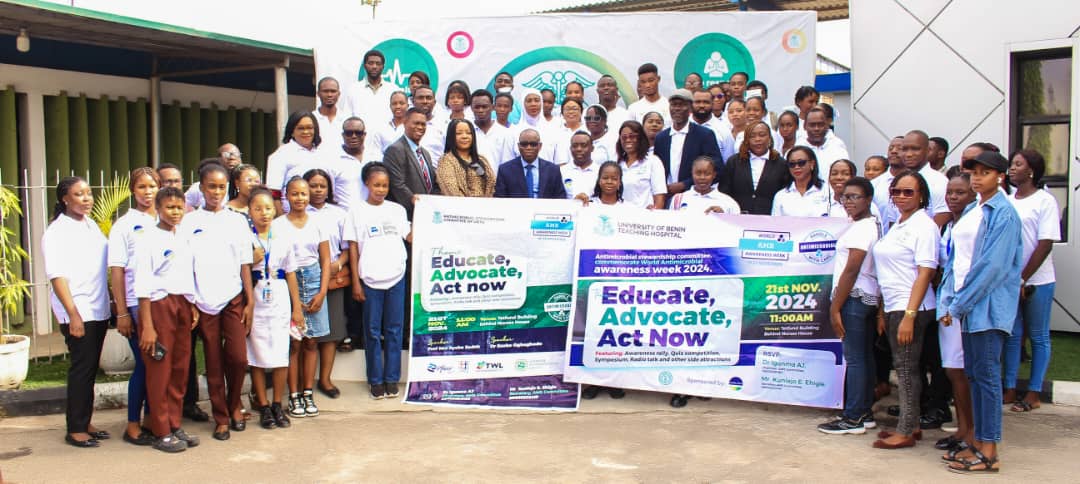By Simeon OSAJIE
The Antimicrobial Stewardship (AMS) Committee of the University of Benin Teaching Hospital (UBTH) has organized World AMR Awareness Week (WAAW) 2024 with the theme “Educate. Advocate. Act now”, featuring Quiz Competition, Awareness rally and Healthcare workers’ Symposium.
On Thursday, 21st of November, 2024, the committee launched an awareness campaign to sensitize members of the public on how to handle antimicrobials with care. The symposium held immediately after at the Tetfund Lecture theatre, UBTH, Benin City.
The Chairman, the Medical Advisory Committee, UBTH, Prof. Stanley Okugbo, who declared the rally opened, said it is vital to enlighten the public on the importance of handling antimicrobials with care.
In his welcome address at the symposium, the Chairman, AMS Committee, Dr. Igunma AJ, acknowledged the support from the UBTH management to the Committee for the huge success recorded throughout the programme.

Prof. Stanley Okugbo, Chairman, the Medical Advisory Committee, UBTH, declaring the rally open
He also acknowledged the assistance and support from the teachers and heads of schools, especially towards the success of the quiz competition. He disclosed that the students performed excellently and that the committee members were impressed.
The CMAC, Prof. Stanley Okugbo presented awards to the students who participated in the quiz competition which held earlier in the week on Tuesday, November 19th, 2024. The paramedic students clinched the first prize while the students from health information technology and nursing were first and second runners-up respectively.

Dr. Igunma explained the reason for the week-long event stating, “Today, we are commemorating World AMR Awareness Week 2024 with the theme “Educate, Advocate “Act Now” to create awareness among health professionals including students. We need to be aware of the benefits of antibiotics, antiviral, and antifungals, and how to use them judiciously while ensuring they remain useful for the future.
“A lot of antibiotics have become useless due to inappropriate use to the extent that some pharmacies no longer stock them. The reason is that many bacteria are already resistant to these drugs.
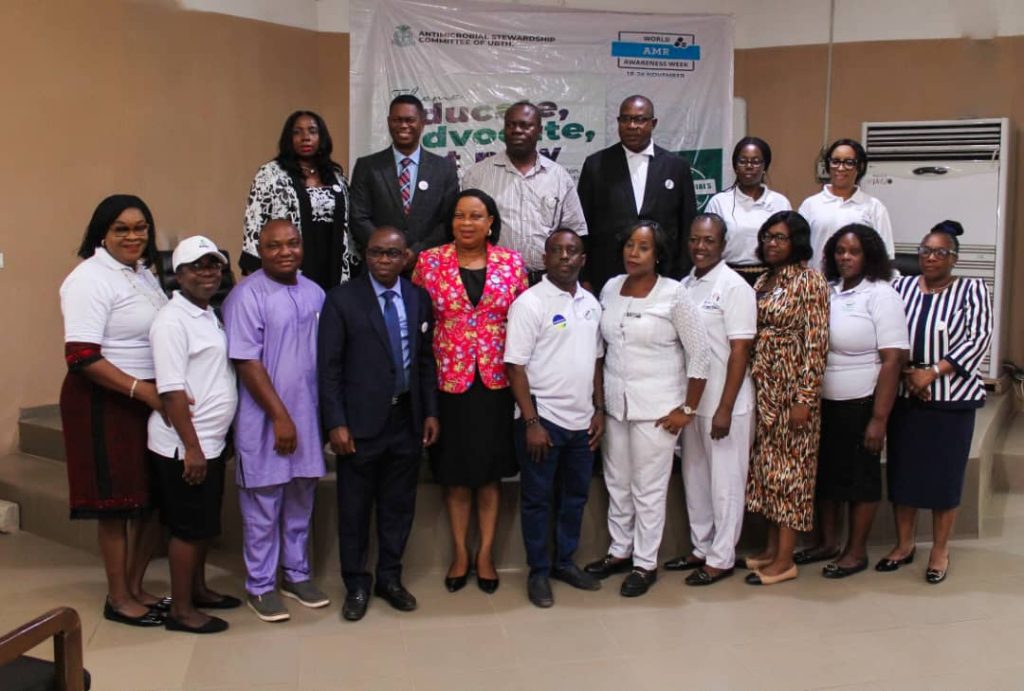
“It is for this reason that the World Health Organization (WHO) instituted a programme like this to educate and create awareness among every health professional because we are key stakeholders. When we know, our families will know, when we know, our neighbours will know, when we know, our environment and society will know. So, that is why we are doing this here so that we all agree to educate ourselves. As we attend to patients who come to our facility, we prescribe to them and educate them. We also teach our students who are the future professionals of tomorrow. They are ambassadors of their various workspaces, so, we should carry them along.”
While delivering her lecture on the topic: “Handle Antimicrobial With Care”, Prof. (Mrs) Ayebo Sadoh, a Professor of Pediatric Infectious Diseases and the Director, Institute of Child Health, UNIBEN/UBTH, stated that antibiotics have made tremendous contributions to medicine since their introduction in the 1940s. She said that loss of effectiveness of antibiotics with resistance to both first line and last-resort have been documented globally.
According to her, “The rising global trend of antibiotic resistance has become a cause for concern. The pattern of resistance in the organisms vary by country and regions mirroring patterns of infectious disease and antibiotic use. In the US, 2 million cases of infection by resistant organisms and 23,000 deaths are reported yearly while in Europe an estimated 25,000 deaths are attributable to antibiotic resistant infections.
“As always limited data are available from developing countries. India estimates that 58000 neonatal sepsis deaths are attributable to antibiotic resistant infections.”
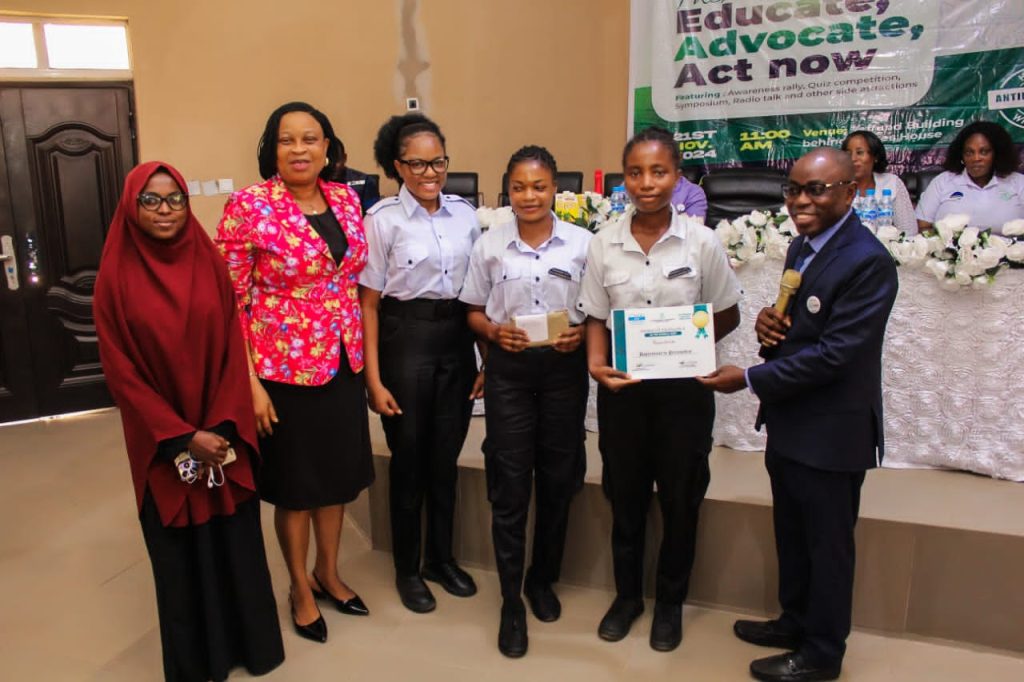
Going further, Prof. Sadoh disclosed that in Nigeria national data are not available as there is no coordinated surveillance however a systematic review was carried out by the Federal ministries of Environment, Health and Agriculture. The findings showed varying levels of resistance to different antibiotics.
“In Edo state 79-100% resistance to the penicillins and 68-80% resistance to tetracyclines. In a multiregional study in 5 of 6 geopolitical zones there was high level of resistance to penicillin, cephalosporins, streptomycin, chloramphenicol, tetracycline and cotrimoxazole.
“In Lagos, 45% resistance to cephalosporins with ESBL. In Edo state – 100%, 44-100%, 44-50% resistance of shigella to penicillins, genticin and quinolones respectively.”
Prof. Sadoh concluded that antibiotic resistance has become an existential threat and children are more likely to suffer the devastating effects.
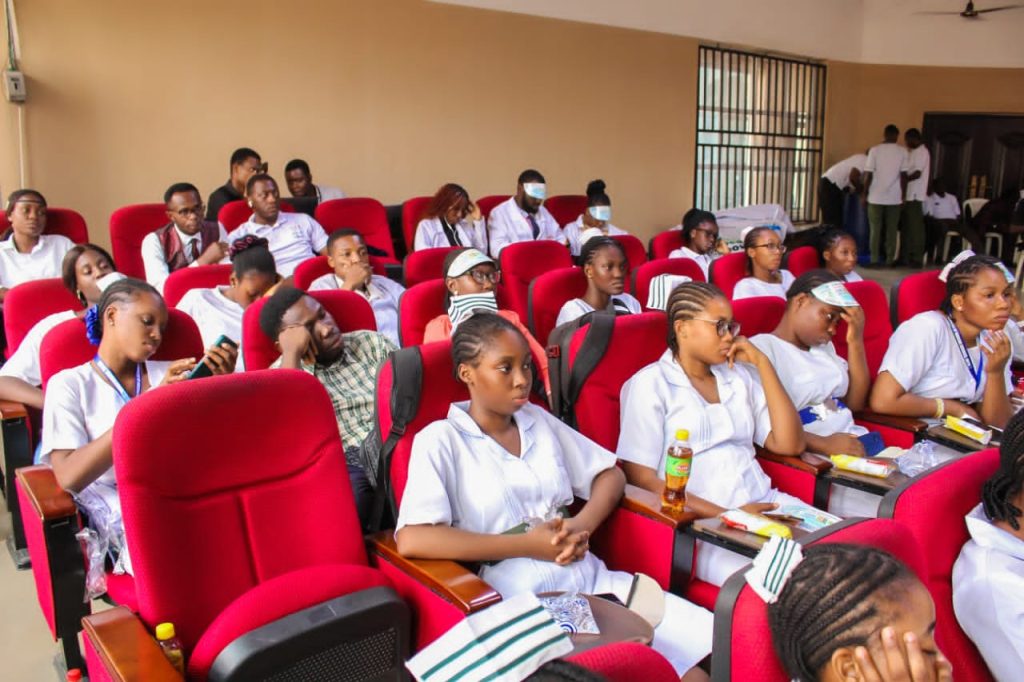
“The PPS is a veritable tool for monitoring our performance but it would be useless if we do not make concerted efforts to change the narrative. When we improve our prescribing patterns, advocate for antibiotic stewardship and act to protect antibiotics then the PPS becomes a pathway to optimal prescribing with repeated PPS serving as the monitor. We must educate, advocate and act on behalf of antibiotics now,” she said.
Dr. (Mrs) Esohe Ogboghodo, DCMAC/IPC Lead, UBTH and Associate Professor of Public Health, UNIBEN represented by Dr Fum Adioi, a senior registrar in the Department of Public health UBTH presented the topic “The Role of Infection Prevention and Control in Mitigating Antimicrobial Resistance: Insights and Recommendation.
The third lecture of the day was a BIOMERIEUX-sponsored presentation titled “The Role of Microbiology Lab Automation in Antimicrobial Resistance Management”. The lecture was presented by Dr. Igunma AJ on behalf of the company. He gave insight into how Laboratory automation is used.
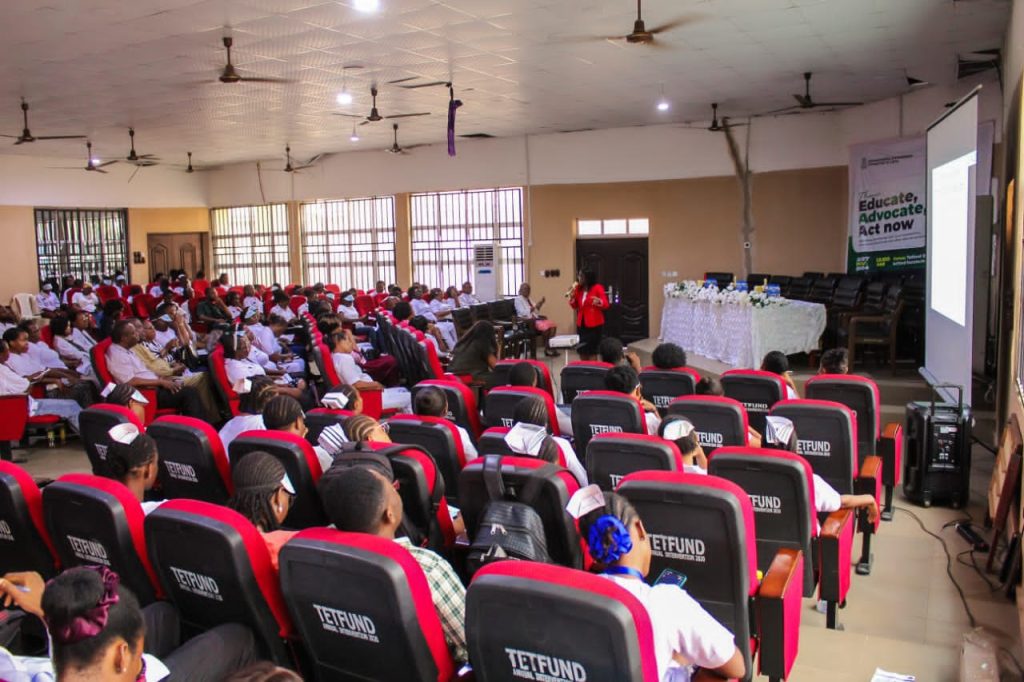
According to him, “Laboratory automation is the use of technology to perform tasks in a laboratory, such as sample preparation, analysis, and reporting, with minimal human intervention. He added that Automation can improve the quality and efficiency of laboratory work, and reduce errors and costs.
“All clinical microbiology laboratories around the world express the unmet need for improved quality, productivity and faster diagnosis to reduce the misuse of antibiotics. Some common laboratory automation systems were mentioned including Microbiology Laboratory Automation (MLA) Systems, Matrix-assisted Laser-desorption Ionization – Time-of-flight Mass Spectrometry (MALDI-TOF MS). VITEK 2 and BACT/ALERT® 3D. He emphasized the role that BIOMERIEUX laboratory automated systems play in helping to promote infection control measures thus reducing the spread of antimicrobial resistance through improved turnaround time.”

The high point of the event was the badging of selected stakeholders as antimicrobial Stewardship ambassadors to lend their voices to the fight against antimicrobial abuse; misuse and overuse.
According to Dr. Igunma, the Ambassadors have been given a mandate to educate, advocate and act in favour of the appropriate use of antibiotics in their homes, hospitals, and society.
He concluded by acknowledging the sponsors that made the week-long event possible including Pfizer Pharmaceutical, BIOMERIEUX, Nigerian Society for Paediatric Infectious Diseases (NSPID), Green Life Pharmaceutical Ltd., Tolaram Wellness Limited, UBTH management led by prof Darlington Obaseki, and Nigeria Medical Association, Edo State branch, led by Dr. Eustace Oseghale.
